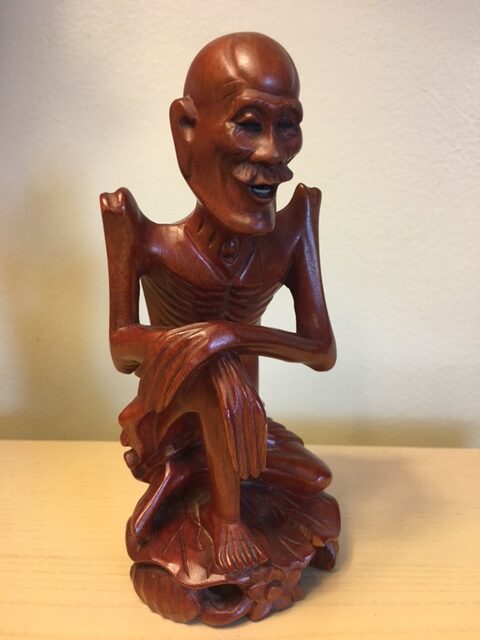Where Do You Find Your Sacraments?
Martin Elfert’s recent column “Mourning Queen Elizabeth,” in which he described her as a sacrament, really got me thinking: Who, what or where are those sacraments in my life? Can I identify the outward and visible signs of an inward and spiritual grace that are manifest in my daily existence? How do they function to transform me and my interactions with the wider-world?
Let me be clear: I am not talking about sacraments or rituals in a formally religious sense. I am talking about the signs and symbols and actions that serve to make me aware of the elements of a life of grace. These include love, devotion, compassion, generosity, honesty, patience, non-judgment and friendship.
A sacrament is not just a symbol conveying a hidden interior spiritual condition. It also functions as a mediator of “the Ultimate,” which inspires or conveys that spiritual state of grace. These abstract concepts of grace, these intangibles, are made tangible by creating powerful symbols and incorporating them into meaningful action and rituals.
A word of caution here: The sacrament and the ritual are not “the Ultimate.” Their function is to point us toward the Ultimate, to provide a means of connection with or accessing of the Ultimate. The Ultimate transcends the ritual and the sacrament. To confuse those is to miss the intentional communion at the heart of sacrament and ritual.
If a person can be a sacrament, as Martin Elfert has written, the first and foremost and undeniable sacrament in my life is my son. He has been the medium for unconditional love, patience, generosity and commitment and devotion in my life. By his existence, and my sacred obligation to be his mother, that relationship has completely and radically transformed me. Through that relationship, I have come to a deeper understanding of just what unconditional love, patience (sometimes . . .), generosity, commitment and devotion really mean.
Living and strengthening that transformation involves various rituals: cooking favorite foods, first day of school traditions, time reading and talking and playing together, laughing at inside jokes, crying over disappointments, transcending mundane hours and circumstances with our shared love of music, ending every contact with a profession of love and the silent benediction I have bestowed on him whenever he walks out of the front door.
Part of grace is honestly acknowledging the truth in respectful and positive ways. Since my own sacramental transformation has been marked by fits and starts, poor choices, and outright failures, my son has bestowed on me the grace of forgiveness. As his mother, I’ve been humbled by his generosity of spirit. In ways he couldn’t possibly imagine, he has been my salvation.
Other relationships in my life — my devoted husband, my loving and caring brother, and several lifelong friends — are all sacraments that have transformed me by the grace and kindness and support they’ve shown me, often when I least deserved it. I simply could not be more grateful.
And speaking of gratitude, it’s one of the best rituals available for invoking and being aware of the sacred in our lives. So is mindfulness. Objects can act as talismans for us while we are going about our regular business:
- A sculpture of a Chinese skeletal beggar my Dad acquired during the war sits in my kitchen and prompts my gratitude for the abundance of food in my life.
- My husband very deliberately puts on his wedding ring when he leaves the house, in essence, re-enacting the public commitment made during our wedding.
- A very modern sculpture of a female in the lotus position, a gift from my Mother from her travels, reminds me to be thankful for my ability to travel and to use my body and mind in meaningful ways.
- Books that I own, especially from people important in my life, speak of our shared values, interests, and the importance of intellectual curiosity and open minds.
- My “Duet Pinky Ring” — a symbol of women mentoring other women — urges me to remember all of the help I’ve received from kind and giving women, and my responsibility to pay that forward to the young women in my life.
- Supporting a local theatre group presenting challenging ideas confirms my intention to tolerate different viewpoints, to respect the dignity of all people and their individual histories, and consider values beyond my immediate circle.
My list could go on. I’m certain your list is rich and life-enhancing too. By being mindful of the grace in our lives, and being deliberate about making it manifest on a regular basis, we too can experience the sacramental in our daily living. And just maybe, we could be a sacrament in someone else’s life and purvey that grace which we all need and want.








